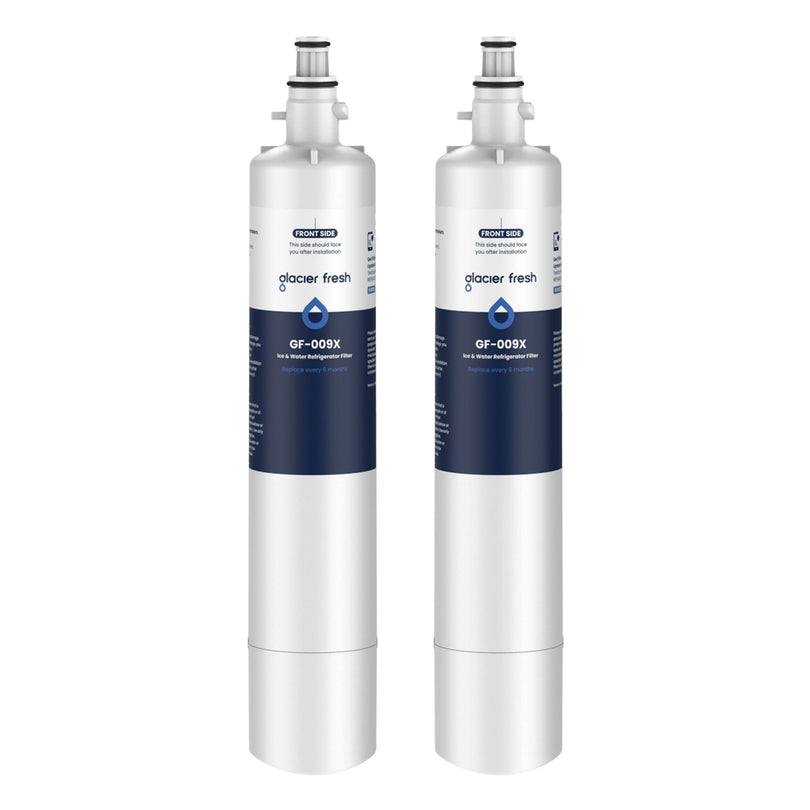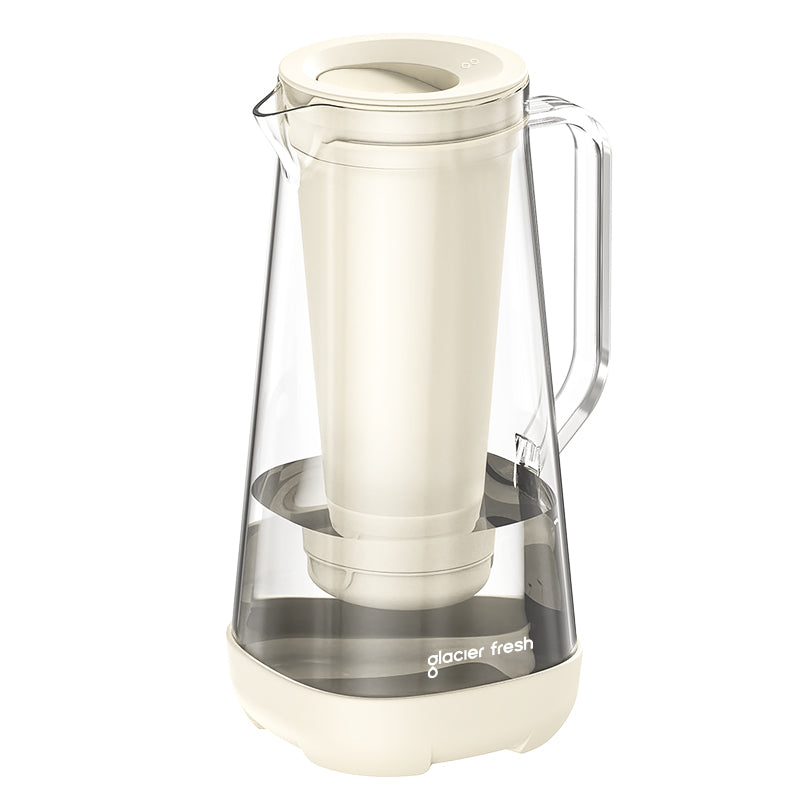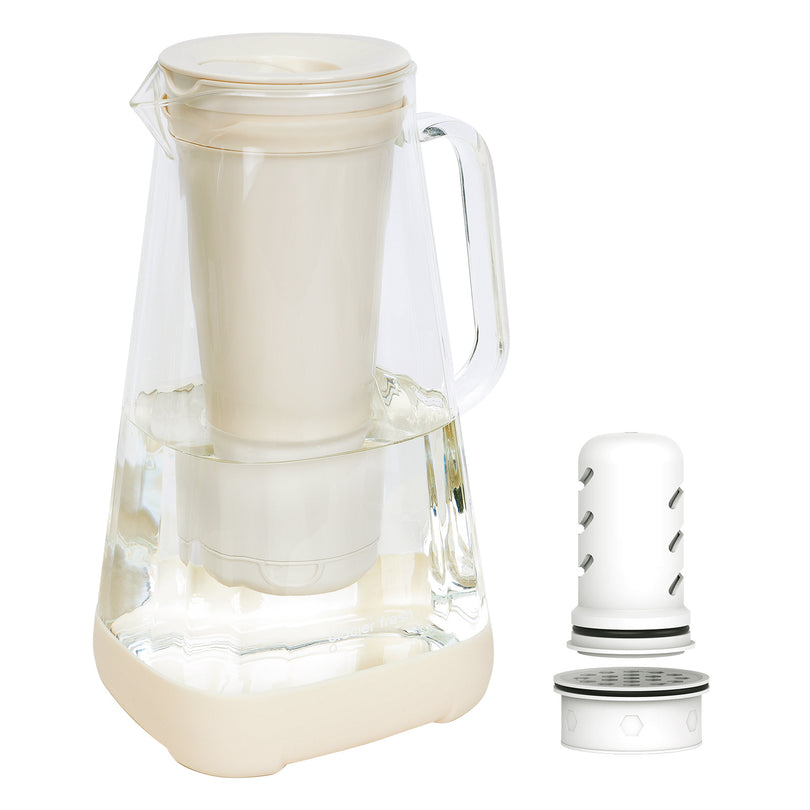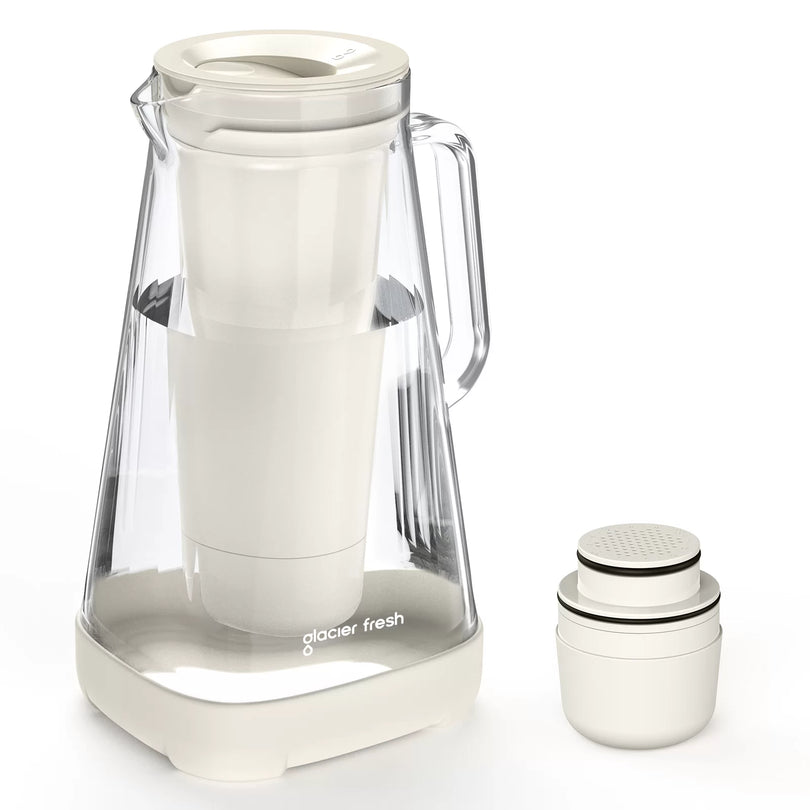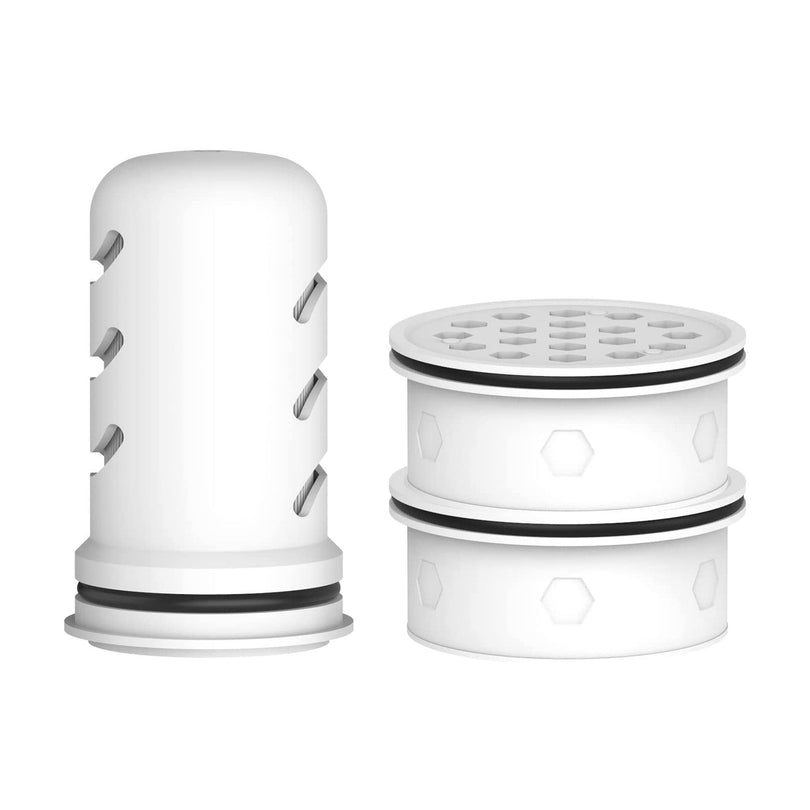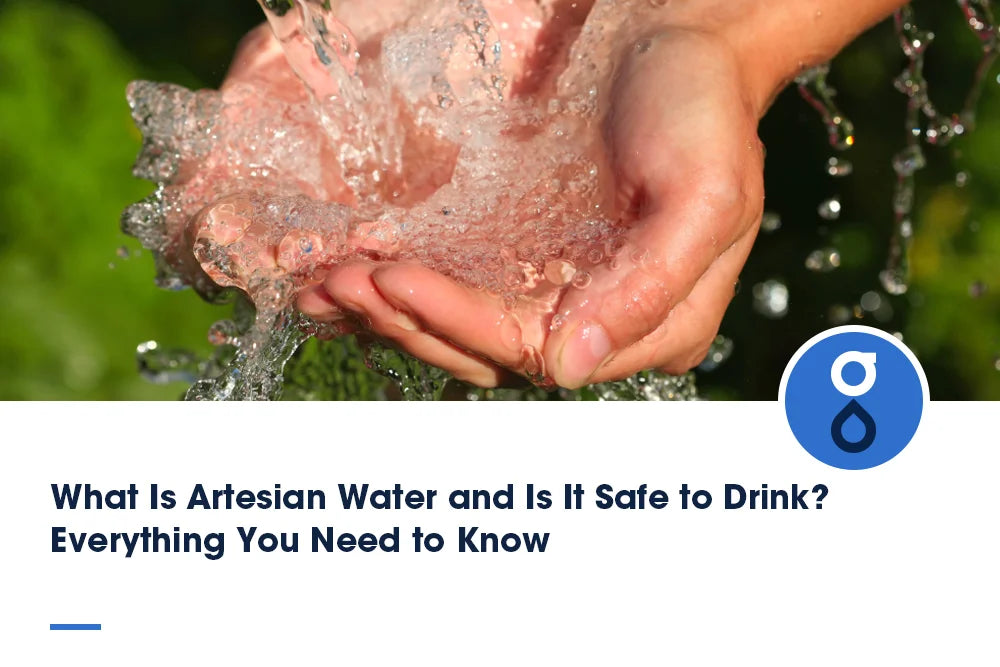Table of Contents:
Was ist artesisches Wasser?
Wie wird artesisches Wasser gewonnen?
Vorteile des Trinkens von artesischem Wasser
Gibt es Risiken beim Trinken von artesischem Wasser?
Wie trinken Sie artesisches Wasser?
FAQs
Abschluss
Sie haben wahrscheinlich schon von artesischem Wasser gehört und es vielleicht sogar probiert. Aber wissen Sie, was es ist? Dieses natürlich unter Druck stehende Wasser stammt aus gespannten Grundwasserleitern und sprudelt ohne Pumpen aus der Erde. Es ist bekannt für seine einzigartige Mineralzusammensetzung, die gesundheitsfördernd sein kann. Die Frage ist jedoch: Ist es sicher? Es können potenzielle Schadstoffe lauern, und es ist wichtig, sich dieser Risiken bewusst zu sein, bevor Sie den nächsten Schluck trinken. Bleiben Sie dran, um mehr über die Sicherheit und Vorteile von artesischem Wasser zu erfahren.
Was ist artesisches Wasser?

Artesisches Wasser sprudelt tief aus der Erde und ist ein Naturwunder, das viele Menschen nicht ganz verstehen. Es ist kein gewöhnliches Wasser; es ist einzigartig, dank der Mechanik artesischer Brunnen . Ein artesischer Brunnen wird nämlich nicht wie ein normaler Brunnen gebohrt. Stattdessen zapft er Wasser an, das zwischen Schichten aus undurchlässigem Gestein oder Ton eingeschlossen ist. Dieses Wasser fließt unter Druck auf natürliche Weise an die Oberfläche.
Was artesisches Wasser jedoch auszeichnet, ist seine Mineralzusammensetzung. Auf seinem Weg durch die Erde nimmt es Mineralien auf, die ihm einen unverwechselbaren Geschmack und potenzielle gesundheitliche Vorteile verleihen. Es ist oft reich an Kalzium, Magnesium und Kalium – Elemente, die Ihr Körper braucht. Natürlich ist nicht alles positiv. Die Umweltauswirkungen artesischer Brunnen können erheblich sein. Überbohrungen können zu einem Druckabfall führen, der zum Austrocknen der Brunnen führt. Schlimmer noch, es kann zu Bodensenkungen kommen, einem Absinken oder Setzen der Erdoberfläche.
Wie wird artesisches Wasser gewonnen?
Ausgehend von der allgegenwärtigen und doch vielfältigen Präsenz von artesischem Wasser wollen wir untersuchen, wie es gewonnen wird. Zunächst müssen Sie die Funktionsweise eines artesischen Brunnens verstehen. Ein artesischer Brunnen erschließt Grundwasserleiter – wasserführende Schichten aus Sand, Schluff oder Gestein unter der Erdoberfläche. Das Wasser in diesen Grundwasserleitern steht unter Druck und wird ohne Pumpe nach oben gedrückt.
Die Wasserqualität ist bei der Gewinnung von artesischem Wasser entscheidend. Der natürliche Filterprozess des Wassers, das durch Gesteins- und Erdschichten sickert, entfernt Verunreinigungen und verbessert so die Qualität. Hier ist eine Tabelle, die dies anschaulich darstellt:

Vorteile des Trinkens von artesischem Wasser

Das Trinken von artesischem Wasser bietet zahlreiche gesundheitliche Vorteile, die Sie kennen sollten. Dieses Wasser ist bekannt für seinen hohen Mineralstoffgehalt, darunter Kalzium und Magnesium , die für die Knochengesundheit unerlässlich sind. Sie löschen nicht nur Ihren Durst, sondern nehmen auch Mineralien auf, die sich positiv auf Ihr allgemeines Wohlbefinden auswirken.
Einer der wichtigsten gesundheitlichen Vorteile von artesischem Wasser ist seine hydratisierende Wirkung. Das Wasser stammt aus einer tiefen, natürlichen Quelle und ist oft reiner als andere Flaschenwässer. Das bedeutet, dass Sie Flüssigkeit ohne Zusatzstoffe und Schadstoffe erhalten – ideal für die Gesundheit Ihres Körpers. Hier ein kurzer Überblick über die Vorteile von artesischem Wasser:

Gibt es Risiken beim Trinken von artesischem Wasser?
Trotz der vielen Vorteile von artesischem Wasser ist es auch wichtig, potenzielle Risiken zu berücksichtigen.
- Verunreinigungen in artesischem Wasser : Obwohl artesisches Wasser in der Regel eine hohe Reinheit aufweist, ist es nicht völlig immun gegen Verunreinigungen. Das Wasser kann Spurenelemente oder Mineralien enthalten, die im Übermaß ein Gesundheitsrisiko darstellen können.
In einigen Fällen können Schadstoffe von der Oberfläche in die Wasserquelle eindringen und schädliche Substanzen einbringen.
- Gesundheitliche Folgen : Der Konsum von verunreinigtem artesischem Wasser kann zu verschiedenen gesundheitlichen Problemen führen. Je nach Art und Grad der vorhandenen Verunreinigungen reichen diese von leichten Magen-Darm-Problemen bis hin zu schwerwiegenderen Erkrankungen wie Nierenschäden.
- Umweltauswirkungen : Abgefülltes artesisches Wasser hat einen erheblichen ökologischen Fußabdruck. Die Herstellung und Entsorgung von Plastikflaschen trägt zur Umweltverschmutzung und zu Abfallproblemen bei.
Darüber hinaus kann eine übermäßige Entnahme von artesischem Wasser die unterirdischen Grundwasserleiter erschöpfen und den natürlichen Wasserkreislauf stören.
Wie trinken Sie artesisches Wasser?

Die Wahl des richtigen artesischen Trinkwassers kann schwierig sein, muss es aber nicht. Informieren Sie sich zunächst über die Vorteile von artesischem Wasser. Dieses Wasser wird natürlich gefiltert und kann wertvolle Mineralien enthalten. Allerdings sind nicht alle artesischen Brunnen gleich. Die Qualität des artesischen Wassers kann je nach Quelle variieren.
Graben Sie tiefer in die artesischen Wasserquellen. Einige Marken beziehen ihr Wasser aus geschützten Reservaten, wodurch eine minimale menschliche Kontamination gewährleistet wird. Wenn Sie umweltbewusst sind, entscheiden Sie sich für Marken, die bei ihren Fördermethoden nachhaltige Praktiken fördern.
Berücksichtigen Sie als Nächstes den Geschmack des artesischen Wassers. Es sollte klar und frisch sein und keine ungewöhnlichen Aromen aufweisen. Manche beschreiben es aufgrund der natürlichen Mineralien sogar als süßlich. Es gibt eine große Auswahl an artesischen Wassermarken auf dem Markt. Achten Sie auf transparente Marken hinsichtlich ihrer Herkunft, Extraktionsverfahren und Qualitätsprüfungen.
FAQs
Was ist der Unterschied zwischen artesischem Wasser und Quellwasser?
Die Geschmacksunterschiede zwischen beiden liegen hauptsächlich im Mineralgehalt und der Herkunft. Manche Menschen bevorzugen den Geschmack von artesischem Wasser aufgrund seines höheren Mineralgehalts, während andere den frischen, klaren Geschmack von Quellwasser bevorzugen.
Ist artesisches Wasser besser als Leitungswasser?
Zu den Vorteilen von artesischem Wasser gehört ein höherer Mineralgehalt, der zu seinem oft besseren Geschmack beiträgt. Leitungswasser hat einen geringeren CO2-Fußabdruck, da es weder in Plastikflaschen noch transportiert werden muss. Andererseits wird artesisches Wasser oft in Flaschen abgefüllt und transportiert, was seine Umweltbelastung erhöht.
Abschluss
Sie haben nun etwas über artesisches Wasser, seine Gewinnung und seine Vorteile erfahren. Obwohl es wichtige Nährstoffe und Flüssigkeit liefert, ist Vorsicht geboten. Wählen Sie ausschließlich vertrauenswürdige Marken, die den EPA- und FDA-Standards entsprechen. So können Sie den einzigartigen Geschmack und die gesundheitlichen Vorteile von artesischem Wasser genießen, ohne sich um mögliche Verunreinigungen sorgen zu müssen. Bleiben Sie informiert, treffen Sie kluge Entscheidungen und profitieren Sie von dieser natürlichen, unter Druck stehenden Wasserquelle. Besuchen Sie Glacier Fresh und entdecken Sie weitere Wasserfilterlösungen.




